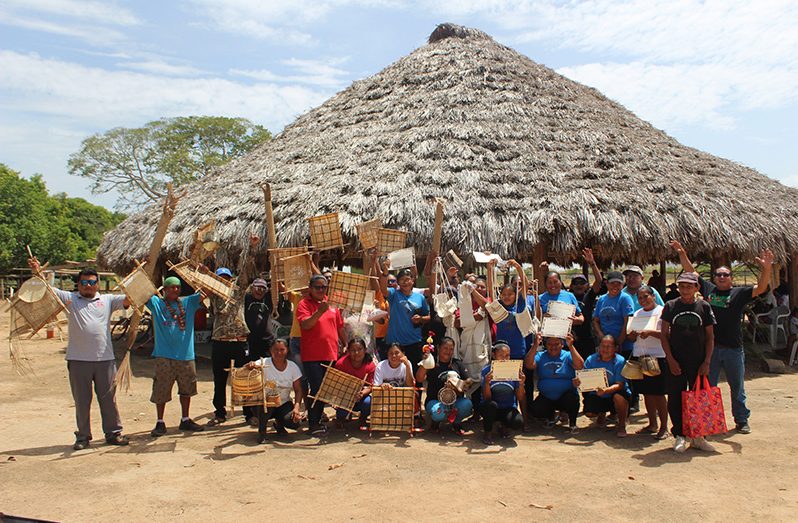IN the heart of the Rupununi region, a remarkable initiative has been underway to safeguard the rich tapestry of traditional skills and knowledge passed down through generations.
Over the past eight months, a diverse group of 30 individuals from the communities of Quiko, Shulinab, and Meriwau have embarked on a journey of rediscovery and preservation.
Gathered weekly, these eager learners immersed themselves in a curriculum designed to impart traditional skills vital to their cultural heritage.
Guided by respected facilitators selected by their communities, participants delved into the intricacies of cotton weaving, the nuances of the Macushi language, the art of mukro plaiting, and the craftsmanship of traditional crafting.
According to the South Rupununi Conservation Society, the genesis of this programme lies in the collective concern of Rupununi residents who have observed a gradual erosion of traditional knowledge and skills among younger generations. Fearing the loss of invaluable cultural heritage, communities resolved to take proactive measures to ensure its continuity.
Central to this endeavour is the belief that formalised classes offer a structured platform for knowledge transmission, providing individuals with the opportunity to not only learn but also actively participate in preserving their cultural legacy.
Acknowledging the significance of collaborative efforts, the Amazon Conservation Team Suriname has played a pivotal role in partnering with local communities to support and sustain this initiative. Their unwavering commitment has served as a catalyst for community-driven initiatives aimed at cultural preservation.
Gratitude abounds for the steadfast collaboration of Shulinab, Meriwau, and Quiko communities, whose collective vision and dedication have breathed life into this project. Meriwau village, in particular, has graciously opened its doors to host an exhibition showcasing the fruits of this labourious endeavor.
The success of this programme owes much to the dedication and expertise of its facilitators, whose passion for preserving cultural heritage has been instrumental in inspiring and empowering participants. Their tireless efforts, coupled with the enthusiasm and commitment of learners, underscore the profound impact of grassroots initiatives in safeguarding cultural identity.
As the programme draws to a close, its legacy resonates far beyond the confines of Meriwau village, serving as a beacon of hope for communities striving to preserve their cultural heritage amidst the winds of change. In the timeless rhythms of traditional skills and knowledge, lies the essence of identity, resilience, and collective strength—a legacy worth cherishing and passing on to future generations.



.jpg)










